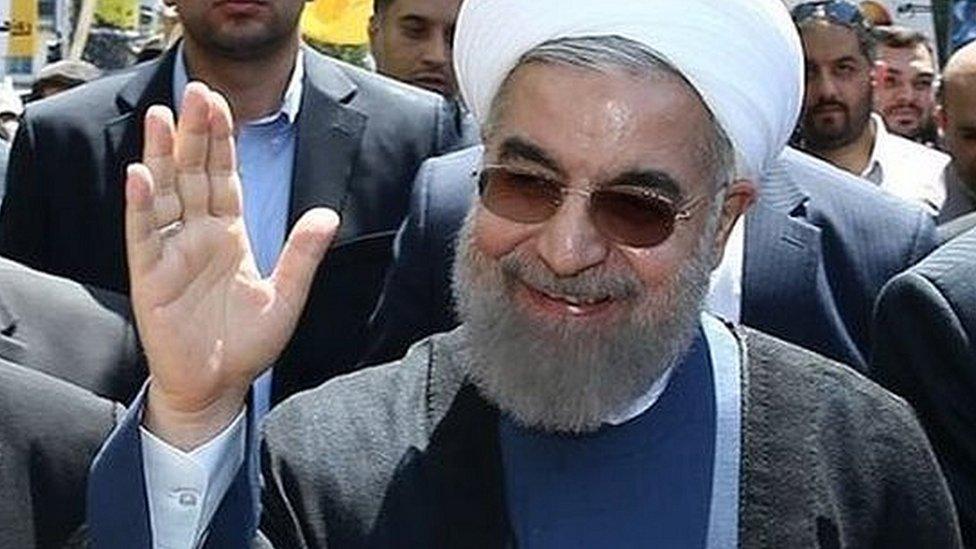Iran protests: Supreme leader Khamenei blames 'enemies'
- Published
Iran protests: Why people are taking to the streets
Iran's supreme leader has accused the country's enemies of stirring days of protests that have claimed at least 21 lives.
Ayatollah Ali Khamenei was speaking for the first time since people protesting at Iran's economic troubles clashed with security forces last Thursday.
Nine people, including a child, died overnight in violence in central Iran, state media say.
The protests are the largest since the disputed 2009 presidential election.
They began last Thursday in the city of Mashhad, initially against price rises and corruption, but have since spread amid wider anti-government sentiment.
What have Iran's leaders said?
In a post on his official website, Iran's supreme leader was quoted as saying: "In recent days, enemies of Iran used different tools including cash, weapons, politics and intelligence services to create troubles for the Islamic Republic."
Allow X content?
This article contains content provided by X. We ask for your permission before anything is loaded, as they may be using cookies and other technologies. You may want to read X’s cookie policy, external and privacy policy, external before accepting. To view this content choose ‘accept and continue’.
He said he would address the nation about the recent events "when the time was right".
Analysts say the supreme leader's reference to "enemies" is a swipe at Israel, the US and regional rival Saudi Arabia.
Tasnim news quoted Ali Shamkhani, secretary of the Supreme National Security Council, as warning Saudi Arabia that there would be a response from Iran "and they know how serious it can be".
Musa Ghazanfarabadi, the head of Tehran's Revolutionary Court, in turn warned that the ringleaders of the protests would face harsh punishment.
President Hassan Rouhani's words have been more measured. He has called the protests an "opportunity, not a threat", recognised economic discontent and said people had a right to take to the streets. However, he has also vowed to crack down on "lawbreakers".
State TV shows protesters in the city of Qahderijan attacking a police station
Reformist and moderate MPs have released a statement urging the authorities to be open to criticism and to be tolerant of the right to protest which, they said, was enshrined in the constitution.
But they also accused the US of trying to take advantage of the situation.
The Islamic Propagation Co-ordination Council, which organises state rallies, has called on people to turn out on Wednesday for pro-government events in Kermanshah, Alborz, Isfahan and Hormozgan provinces.
Where is the violence happening?
There were reports on social media on Tuesday of more unrest, although it is not possible to confirm it independently or the exact timing.
The reports spoke of shots being fired in Sanandaj, in Kurdistan province; a video showed protesters and security forces on the streets of the city of Hamedan; a second video appeared to show flash bombs or grenades being thrown in Rasht and a third showed street fires in Karaj. Other unrest was reported in Gohardasht and Eslamabad-e-Gharb.
Nine deaths were reported overnight into Tuesday:
Six protesters died in an apparent attempt to seize guns from a police station in the town of Qahderijan in the central province of Isfahan, state TV reported
An 11-year-old boy and a 20-year-old man were reported killed in the town of Khomeinishahr
A member of Iran's Revolutionary Guards was fatally wounded in nearby Kahrizsang, state media say

How has the outside world reacted?
US ambassador to the UN Nikki Haley said Iran's allegation that foreign enemies were behind the protests was "complete nonsense".
She said the US also planned to call an emergency session at the UN.
Nikki Haley: "We must not be silent on Iran protests"
President Donald Trump has posted a string of tweets in support of the protesters and against Iran's leaders, the latest one on Tuesday.
Allow X content?
This article contains content provided by X. We ask for your permission before anything is loaded, as they may be using cookies and other technologies. You may want to read X’s cookie policy, external and privacy policy, external before accepting. To view this content choose ‘accept and continue’.
Iran's foreign ministry spokesman, Bahram Ghasemi, responded by saying Mr Trump should focus on "the domestic issues of his own country, such as daily killings of dozens of people... and the existence of millions of homeless and hungry people".
In other reaction:
The EU called on Iran to guarantee its citizens' right to peaceful protest, saying it had been in touch with the Iranian authorities and was monitoring the situation
Turkey expressed concern at the unrest spreading and warned against any escalation
France said it was concerned at the number of victims and arrests

Where will the protests lead?
By Jeremy Bowen, BBC Middle East editor
When the protests started last Thursday, they were about the current economic crisis but as they spread, pent-up frustrations spilled out and politics became a big part of them.
President Rouhani has been widely criticised. He has disappointed voters who hoped he would do more to turn round an economy that has been damaged by years of sanctions, corruption and mismanagement.
Iran's role in conflicts across the Middle East has also been criticised as it is an expensive foreign policy at a time when people in Iran are getting poorer.
Leading figures in the Islamic Republic have also been targeted by protesters, including Supreme Leader Ayatollah Khamenei. He has responded by blaming foreigners. Iran has suffered in the past from foreign interference, so his words will strike a chord among some - and could also signal a much tougher response from the security forces.
The demonstrations do not seem to have recognisable leaders, unlike the last big protests after the disputed presidential election in 2009. At that time, the elite of the Islamic Republic was divided. It is not at the moment, so that will make it harder for the protests to be sustained, and they may run out of steam.
But the fact they are happening at all is very significant. They show how discontented Iranians are with increasing poverty, after years of repression.

What happened in 2009?
Mass demonstrations - referred to as the Green Movement - were held by millions of opposition supporters against the disputed election victory of incumbent President Mahmoud Ahmadinejad.
At least 30 people were killed and thousands arrested in the wave of protests, which drew the largest crowds in Iran since the Islamic Revolution of 1979.
- Published2 January 2018
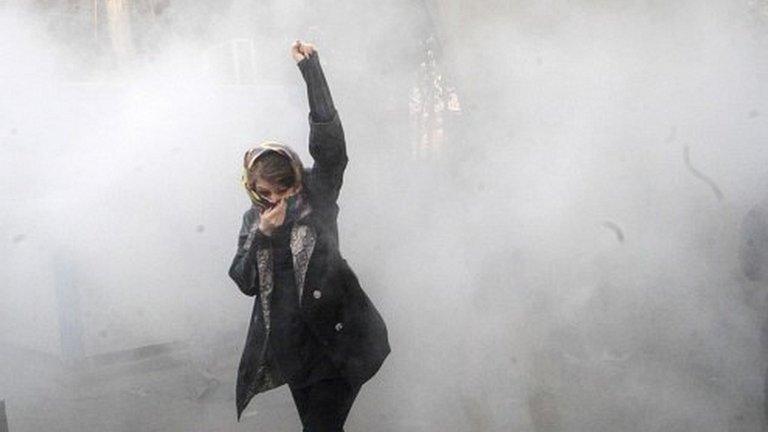
- Published2 January 2018
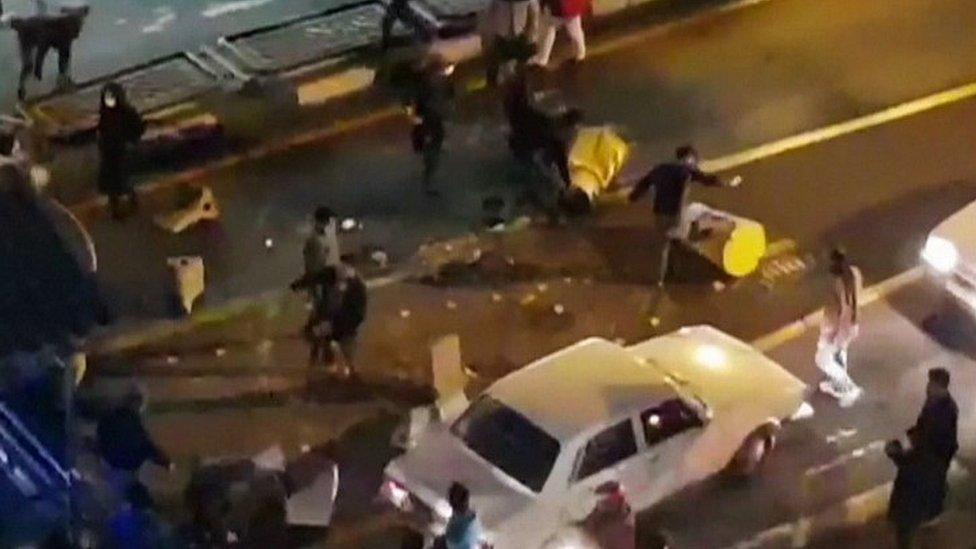
- Published31 December 2017
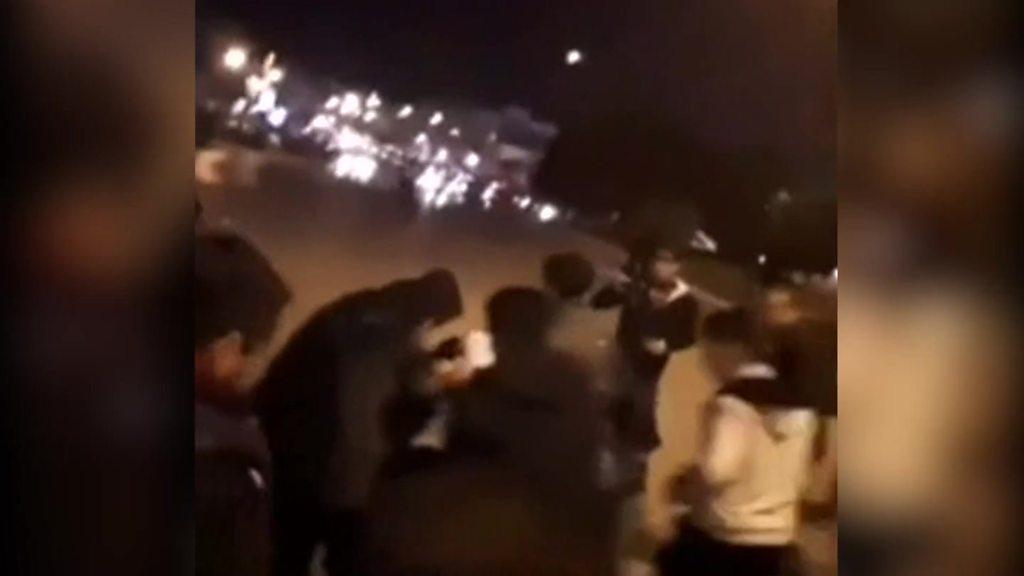
- Published31 December 2017
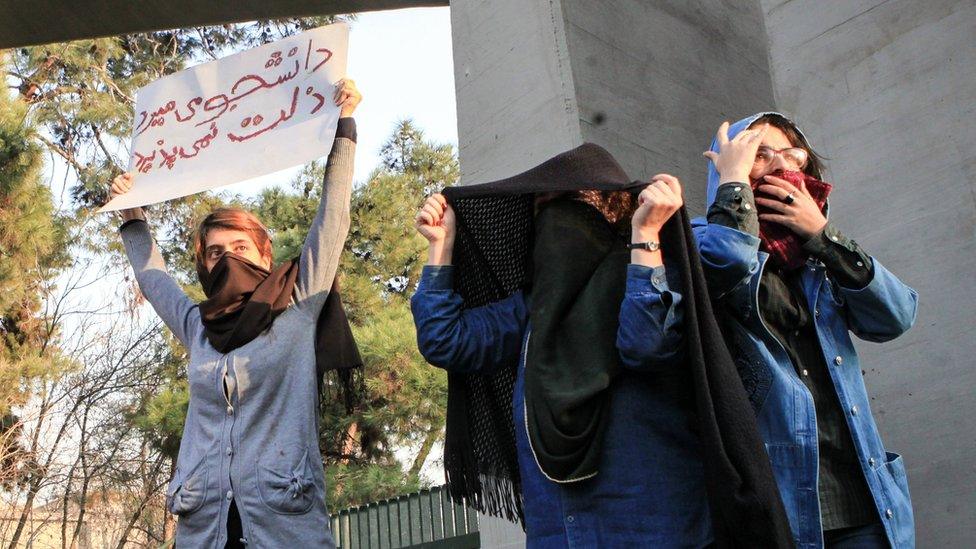
- Published31 December 2017
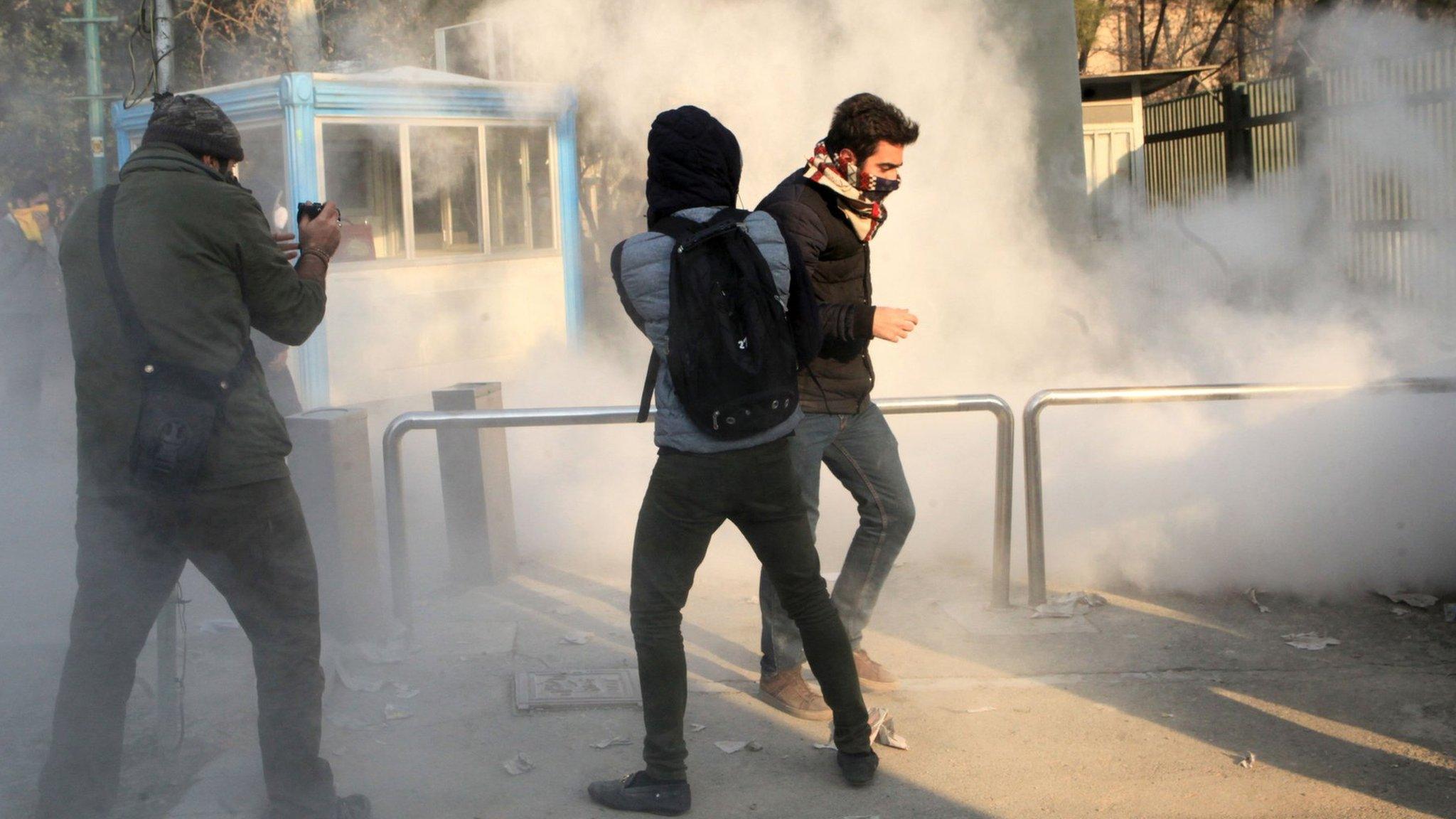
- Published28 December 2017
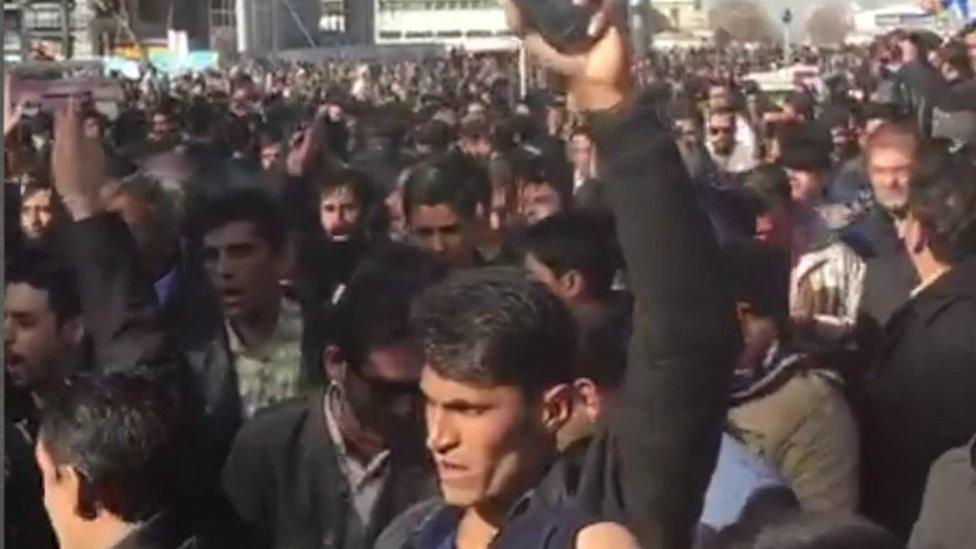
- Published20 May 2017
